Heveinu Salaam Aleikum
| September 9, 2020A blast of warmth from Dubai: On site report from a newly welcoming land
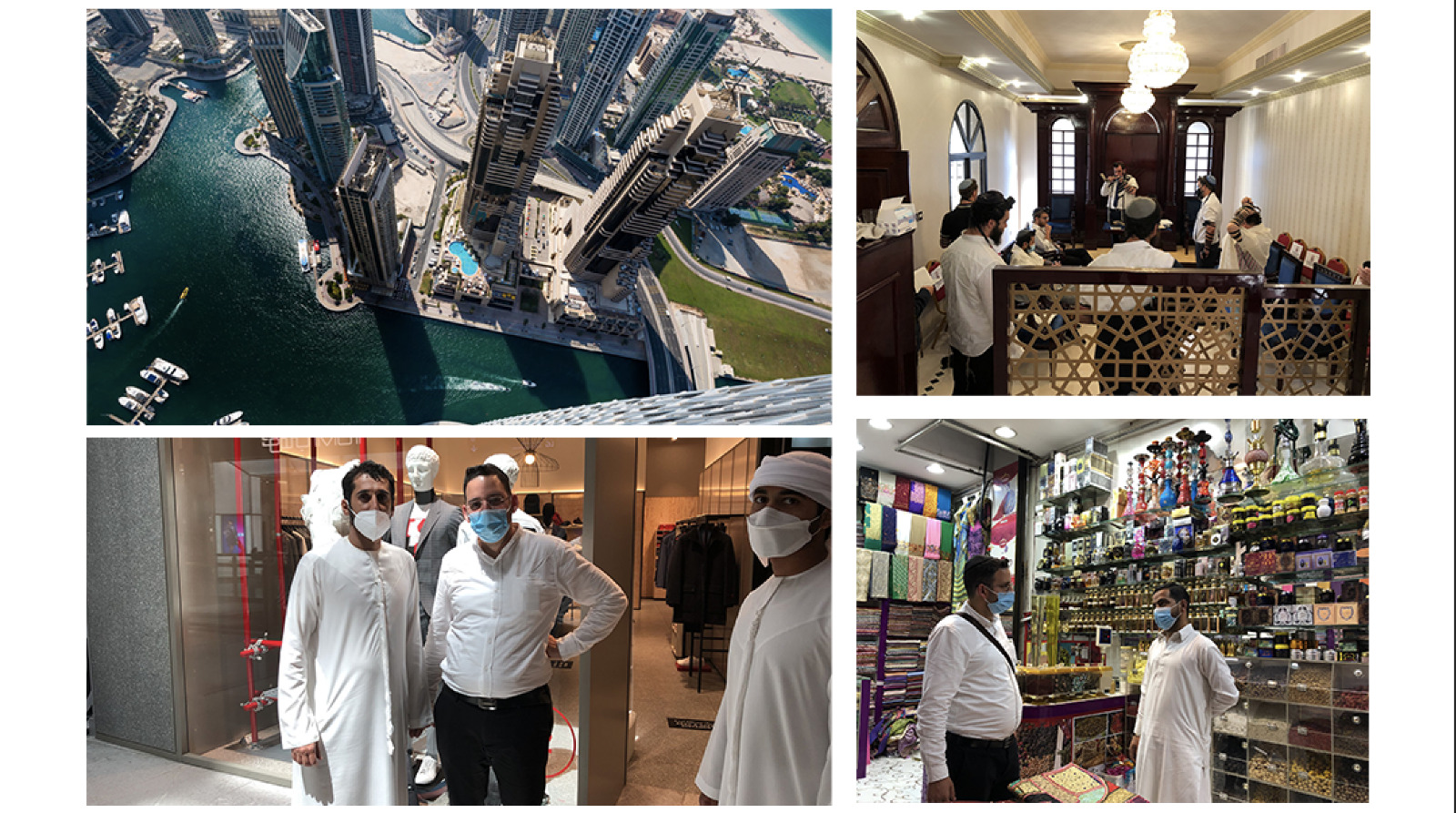
Photos: Flash90, personal archives
As an Israeli journalist, I traveled to Dubai to get a sense of what Israelis and Jews can really expect after the two countries’ reconciliation, once the cameras are turned off and the top brass finish their peace dealing.
Emerging from the plane felt like entering a sauna. It was over 107 degrees when we landed in Dubai, following a flight from Israel to Kiev, a six-hour stopover that included a clash with Ukrainian soldiers who suspected I was a potential infiltrator to Uman, and another six-hour flight to Dubai — and here we were, at the destination many more Israelis will likely visit in the coming weeks.
Walking toward passport control, the anxiety mounted a bit. After all, peace treaty or not, this was still the United Arab Emirates. I pulled out my French passport, which stated “Israel” as my birthplace. It’s amazing how many scenarios can run though one’s head just while walking up to the passport counter.
On the way, I submitted my negative coronavirus test results to the clerk standing before the passport area. He was wearing a kondora and a kaffiyeh, the traditional garb specific to the Gulf State nations. (Until then, I just called lumped all those ankle-length clothes into one category: jalabiya.) The border officer didn’t even ask questions. He glanced at the passport, told me to lower my mask for a moment for identification, and let me go. At luggage control all went smoothly as well, which meant I could shelve my contingency plans in case I got stuck without my suitcase in a Muslim Gulf State.
Upon emerging from the terminal, the patrolmen enforced the coronavirus guidelines. It was mandatory to wear the mask even in the oppressive heat. Anyone violating the directive could be fined 3,000 dirham (about NIS 2,700). Armed with warnings not to get in trouble with the law, I straightened the mask over my nose and stepped out of the opulent terminal into a world of in-your-face wealth.
Dubai is one of the seven emirates that comprise the United Arab Emirates in the Persian Gulf. Its wealthy status is evident wherever you look, whether it is the Burj Khalifa, the world’s tallest structure, the Burj Al Arab, the fanciest hotel in the world and the only one with a seven-star rating (the hotel is currently closed), or the famous palm-shaped artificial islands, unlike any other in the world.
After a few days in this Gulf nation where a Jewish community is quietly putting down roots in the shadow of the skyscrapers, I came to one conclusion: If the rest of the Middle East were so willing to put a good business deal before ideology, peace would have broken out long ago.
Rags to Riches
The locals comprise about one tenth of the residents of the UAE, where the majority are foreigners from India, Pakistan, and many other nations. They come to serve the masters — a million wealthy natives — the clear minority in a population of around 10 million.
One of those “masters” is Salah Az a Din. Each evening, the Az a Din family sits down in the salon, sharing the events of their day and consulting each other on various matters, while the servant brings in a pitcher of tea and platters of cake and cookies. If a family member enters accompanied by a stranger, no one raises an eyebrow. On the contrary, they will offer him a place to sit, a cup of tea, and some cake.
This is called majilis, one of the longtime customs the locals still keep. Each home has a designated room for the majilis, with one of the servants being responsible for providing a steady stream of refreshments and hot drinks as long as someone is sitting there.
I meet Salah Az a Din on my first day here at the Dubai Mall — of course, the largest shopping mall in the world. It features more than 1,200 stores spanning a fantastical one million square meters. Aside for brand-name stores, the mall includes a gold market, artificial ice-skating, an artificial waterfall, a massive aquarium, and an amusement park. In order to move around throughout the complex, shoppers can use taxis to take them around the different zones for a nominal fee.
The locals don’t like to speak to the media. There are many reasons for that, but the main one is their traditional conservatism. For them, media outlets are not a positive thing. In the UAE, the media outlets are under some type of government control, so you will never hear a word of criticism against the authorities.
On the first day, I mentioned to a few people that I was touring the city on behalf of an Israeli newspaper, but on the subsequent days, I decided to bypass that fact. The minute they heard “media” and “Israel,” they’d inevitably retreat. One person even asked me to delete the photos I took.
But Salah agreed to sit down to chat in a little café. I asked him to tell me more about who the Emiratis are, what they do for a living, and how it is that so many of them are fabulously wealthy. Where does the money for the eye-popping sights Dubai is known for actually come from?
The explanation requires a bit of historical background: In the 1970s, the United Arab Emirates gained independence from the British, who gradually handed over rule of the land to the locals. Until oil was discovered a few years earlier, the population of the state was comprised of Bedouin tribes who earned a livelihood by fishing, shipbuilding, and marine trade.
When oil was found and the OPEC cartel was established with neighboring nations, all the Gulf states became rich overnight. In addition to exporting oil and natural gas to the whole world, the Emirates also began to export aluminum, ammonia, processed food, and other products that have transformed the state into an economic superpower.
And that’s where the difference between the United Arab Emirates and the rest of the Western world become evident: “Instead of distributing the resources in the Western method and thus diluting the achievements,” Salah explains, “our sheikhs want us to have a good life and to take care of us.” The sheikhs he refers to are the rulers of the seven emirates.
Their authority is passed down by inheritance, and the leader is the emir of Abu Dhabi and current president of the UAE, Khalifa bin Zayed Al Nahyan. His father, Zayed, is considered the father of the nation, the one who brought it to its meteoric economic rise. Today, the de facto leader of the Emirates is his brother, Mohammed bin Zayed, the crown prince. He is also the driving force behind normalization with Israel.
Each emirate has a national bank, and some of them also have national airlines. Above all, there is a council with broad authorities. As Salah says, “The tradition here is to live in private homes. Because not everyone has the resources to purchase large plots and to build homes, they take interest-free loans from the national bank, with easy payment terms for many years. The sheikhs don’t want people living in tall buildings. It’s not dignified.”
In order to make it possible for the original Emirati citizens to live in spacious homes as the sheikhs wish, once a year there is a mortgage debt amnesty amounting to billions of dollars. I am told this later on by Mohammed, a local who refuses to publicize his full name or photo, but who was happy to speak about the benefits the government provides.
“There’s a fund for debt erasure by the government,” Mohammed explains. “When someone can’t pay his mortgage, instead of leaving his house and moving into an apartment building, the government prefers he stay in the house, and they’ll pay the debt. In actuality, I know a lot of people apply even if they’re not eligible, but no one checks too much. Almost anyone who applies gets an okay, and his debt is erased.”
Western banks have often criticized this policy, but for a country whose coffers are filled with cash, no financial report will undermine its stability. “Also,” Mohammed says, “there’s no income tax in the UAE, no property tax, and no VAT except in Dubai — which two years ago began collecting a 5% VAT. But Emiratis can get an exemption from that as well.”
The last link in the chain of laws that the Emiratis created for their residents is a law stating that a business can only operate within the Emirates and benefit from the perks if 51% of the business is owned by a local Emirati. When the ratio is one million locals to nine million foreigners, you don’t need to be a great economic mind to understand that it’s almost impossible for one of the million locals not to get rich.
The picture painted by Salah and Mohammed sounds too good to be true, but additional residents, including Jewish businesspeople in the country, confirm what they say. “Ultimately, it’s good for us here,” Mohammed concludes. “We like Mohammed bin Zayed. He makes sure things should be good for us, and I don’t think any of the million Emiratis can say a bad word about the ruler. The rest are foreigners who have come from other nations. Anyone who doesn’t like it here can go back to where he came from.”
Perhaps that’s the country’s secret. To Israeli eyes, it’s hard to accept a government that is de facto so generous with its citizens through various laws that provide countless opportunities for economic growth. But there is always an underlying concern that one day, a family with different views will take power, and overnight, it will lead the state to radical Islam.
A Real Kehillah
Kippah or baseball cap? That dilemma, well-known to anyone who has traveled in places where Jews keep a low profile, confronted me as I stepped off the plane. On the first day of my trip, I initially decided to hide my kippah, exchanging it for a cap after being photographed with one of the locals. When someone asked me why I was doing that, I explained that this is an Arab country, so my fears were clear. His response took me by surprise: “If someone touches a hair on your head, he’ll sit in prison for a few years. Who are you afraid of?”
His name is Kalfa, a gold dealer, and he explains that there is enforcement against lawbreakers in the UAE. “If a foreigner breaks the law, he immediately gets deported and winds up losing everything he built. He can never come back. Even locals are punished severely, and hate crimes are enforced strictly. That is why there is essentially no crime here.”
In fact, the UAE is considered one of the safest places in the world for members of all religious faiths. There are no terror attacks or criminal activity. When there is a violent incident of any kind, the police arrive within two minutes — and why not? Most of the police cars are the latest model luxury vehicles.
And so, everyone wants to benefit from the generous perks, and no one cares to clash on political issues that are plane-rides away from them. “The Palestinians are irrelevant,” Kalfa says. “We are interested in business. We want everyone to come here to do business. We’ll all profit, and I’m sure the Israelis will as well.”
I took Kalfa’s advice to wear my kippah for the rest of my visit. Aside for a few looks — mostly of surprise at an apparel item that they had never seen — it didn’t generate much interest from passersby.
It’s in this atmosphere of tolerance that a Jewish community has, under the radar, sprung up over the last few years.
And so, I make my way to the first Selichos in Dubai this year, which take place at the JCC of the Jewish community, headed by Rabbi Levi Duchman, a Chabad chassid who came here about five years ago.
The atmosphere is warm. The community is comprised of Jews from all over the world who have come here for business, among them Israelis who pounced on the opportunity for a new market slated to open to Israelis in the near future.
Over the days that I joined the kehillah for Shacharis, I got to know a few faces. As Shabbos approached, it was moving to see how Jews from all over the world sat down together for meals and sang the Shabbos songs together. The glue holding this little community together is its president, Solly Wolf. Wolf is a businessman in the textile industry who moved to Dubai about 20 years ago after he’d been supplying fabrics to the wives of the local sheikhs. After a while, some of them suggested he move to Dubai to expand his business.
Due to local laws forbidding religious ceremonies, the shul is located in a quiet residential area with villas, not far from the Burj Khalifa. Each year, some of the community members reserve rooms in a nearby hotel, which has gotten used to guests with strange appearances who ask the reception clerks to open the doors, and impudently enough, don’t even leave tips.
“I remember when I walked four hours to a minyan on Shabbos,” says community member Bruce Gurfein. “Today we have joint seudos each Shabbos and people come from all over the city to participate in the tefillos and seudos.”
With the opening of a shul that has tefillos during the week as well, the Talmud Torah that had been operating three times a week is now open daily as well. “For me it’s good,” explains Jeremy Cohen, originally from France, who now lives here for business. “It’s very important to me that my children should learn concepts in Judaism.”
A few weeks ago, in light of the new atmosphere, a mini kollel was even established, where four young bochurim currently learn. “We learn here every day for four or five hours,” they say. They also have regular learning sessions with community members.
We Want Connection
At Dubai’s most famous symbol — the Burj Khalifa tower — I find more than just tolerance for Israelis. The edifice rises 828 meters into the air and is the tallest tower in the world — beating out China’s Shanghai Tower by hundreds of meters. It was built over a period of six years by one of the largest construction companies in the city, and is considered the biggest tourist attraction in the country.
If you didn’t buy a ticket in advance, you’ll have to part with NIS 500 to get to the lookout on the 125th floor. The view is breathtaking: In the middle of dry, desert landscapes, there’s a bubble of skyscrapers, each one of which could easily fit into midtown Manhattan.
The tower is divided into three: The first third is a hotel, the second third is residential apartments, and the third section houses the offices of the largest companies in the city. The city’s business center is located right next to the Burj, and massive skyscrapers create a skyline as far as the eye can see.
And then there are the famous fountains, the backdrop of the Burj Khalifa. The fountains turn on twice a day, once at 1 in the afternoon, and again in the evening, when onlookers come to watch 22,000 liters of water shoot up over 900 feet in the air.
Downstairs in the tower, we meet a longtime friend of Israel named Hamadan Al Kanadi Al Merar. Al Merar is a fascinating personality who lives in the UAE capital of Abu Dhabi, where his family is well-known. Even before there was talk of peace with Israel, Al Merar was curious about what was going on in Israel and began to learn Hebrew. At first, he learned through Jewish friends with whom he does business in Switzerland and America. But during the coronavirus era, he used his extra free time to learn Hebrew in an online school with teachers from Israel.
Al Merar is not alone. He estimates that there are at least ten Hebrew speakers in the Emirates, but none of the others want to be interviewed, either because they have government jobs, or because of the inborn camera-shy reaction in these parts.
With the thermometer showing 45 degrees Celsius (113°F), we found a comfortable air-conditioned area not far from the tower. “I believe the peace agreement will bring prosperity for businesses in both countries,” Al Merar says. “Since the deal was publicized, I get phone calls from many Israelis inquiring about what they can invest in and what they can offer locals.”
Al Merar, who has over the years become a consumer of Israeli news and is proficient in every detail of Israeli politics, clarifies: “The primary areas besides oil are construction, architecture, and technology. The Emirates are very interested in high tech and are ready to invest in anything that looks like it has potential to earn profits in the long term. I know Israeli culture and Emirati culture and therefore I can say that there will be an immediate connection. The Emiratis will like the Israeli mindset, and the relations between the two countries will be very economically beneficial. I call on Israelis to come and visit. They will discover a country that welcomes guests warmly. No one imposes his opinions on another. There are no preconceived notions about Israelis because of the Palestinian issue. Perhaps even to the contrary.”
Dubai’s Stepchild
While the Dubai Mall is a symbol of eye-popping extravagance all around, the most amazing creation in this walk-through mini city is a massive aquarium that rises from the ground floor all the way to the upper level. Aquarium is actually an understatement — it holds 33,000 sea creatures of all kinds, and about ten million liters of water. Like many things in Dubai, it’s also the largest in the world. And for a modest sum of $300, you can even go diving among the fish.
About ten years ago, one of the horror scenarios came to be: The aquarium cracked. Few people strolling in the mall today remember it, but at the time, water was gushing through the lanes and corridors, causing tremendous damage. The accident happened a short time after the liquidation of Hamas operative Mahmoud al-Mabhouh in a Dubai hotel room, which led to conspiracy theories that the Mossad had engaged in sabotage in the UAE as well, which caused a major setback in Gulf-Israel relations.
As if orchestrated, the loudspeakers in the mall issue the muezzin. That’s how it is in a state that keeps its religious laws scrupulously, even while pandering to the West. We pass by a fragrance maker’s store. When he sees the camera in my hands, he runs off to the side. “Take pictures of the store, but not of me,” he says.
Later, when I need a taxi, I spot five supervisors in charge of keeping order at the taxi stand, with luxury vehicles waiting patiently for clients. Wherever there are crowds, there are also ushers and supervisors — that’s the way it is when there are endless resources.
But if Dubai is synonymous with luxury and fantastic wealth, in order to understand the more nuanced story of the city, you need to pay a visit to Al Souk Al Kabir, located in Dubai’s old city. The combination of words “old” and “Dubai” sounds disjointed, but I soon discover what is considered the backyard of this city.
This part of the city seems to have stopped in time a few decades back, before the skyscrapers were built. Walking in the quiet alleys are the laborers of the Emirati masters. The finish their exhausting work, earning a salary that is enough to rent a little hut, a far cry from the glitz and glitter just 20 minutes away.
To build those skyscrapers, millions of workers were needed. The fact that the weather reaches up to 55 degrees Celsius (130°F) in the summer makes construction work almost impossible. The lethal combination of height and heat took the lives of hundreds of workers over the years, who tumbled to their deaths from great heights.
And still, never a word of criticism against the leaders. Here, it appears, everyone just resigns themselves to their fate. For most, their fate is comfortable; for some, it is less so. One example is Hiel-Ghoul, a Pakistani immigrant who has lived in Dubai for 20 years. There are three million others like him, and a similar number of Indian immigrants.
“It’s good for me here,” he says. “If I would stay in Pakistan my life wouldn’t be as good.” He has a business selling carpets, scarves, and other handwork. He opens his store at 8 a.m. and closes when it gets dark, at around 7 in the evening. But these days, the combination of COVID and the oppressive heat has chased all but the most intrepid customers away.
As an experienced market merchant, Hiel has sharp eyes. “You are Israeli, right?” he says immediately. When I ask him how he figured it out he grins: “You can see it on you.” Even though we were warned not to speak politics with the locals, I ask him about the peace agreement with Israel. Judging by his enthusiasm, the welcome is likely to be warm, at least in the market of the old city. “Israelis have come here in the past,” he says. “Come to the market and ask where Hiel’s stall is,” he concludes.
I turn to the pier near the market, where you can clearly view the gap between the old city and the new one. On the right side is the old city with its dismal, rundown scenery. On the left side are the blinding skyscrapers reflected in the strong sun.
One of the attractions in the area is a boat ride across a short canal, taking you in an old wooden boat that’s seen better days to another part of the old city. For the equivalent of 25 cents, you can crowd in with laborers making their way home after a day of work. They’ve left their social distancing rules at their worksites in the new city.
Mohammed Assif, the captain, doesn’t remember the last time it was so quiet — probably a combination of coronavirus and the heat. “You are my first tourist today,” he says. When he realizes I’m from Israel, he understands that maybe what I write will bring him a few readers to visit. “Tell them to come,” he says hoarsely, as I get ready to go to my next stop. “We’re waiting for them.”
(Originally featured in Mishpacha, Issue 827)
Oops! We could not locate your form.

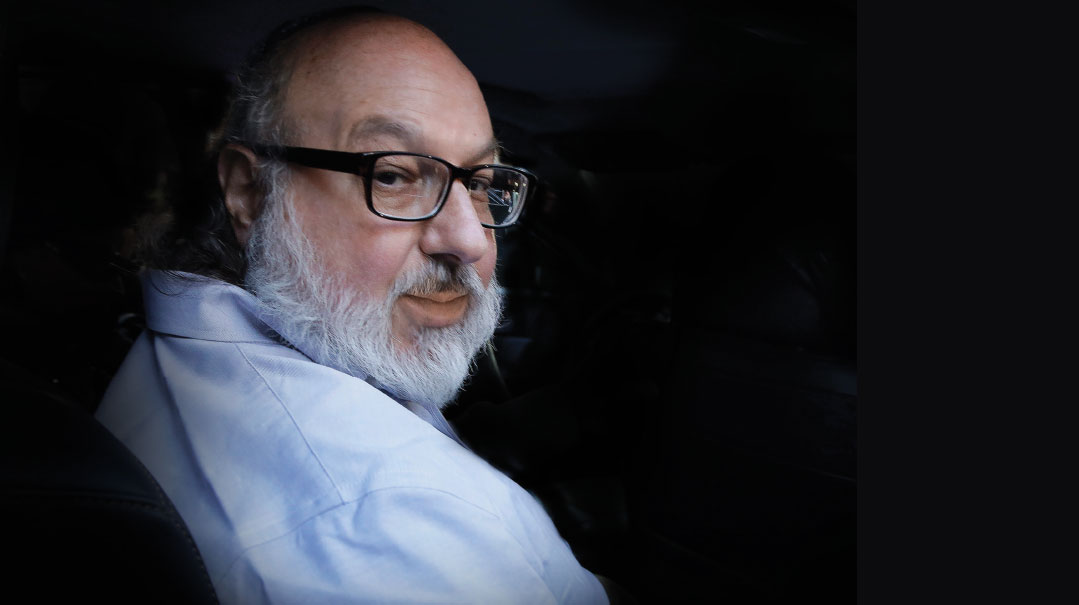
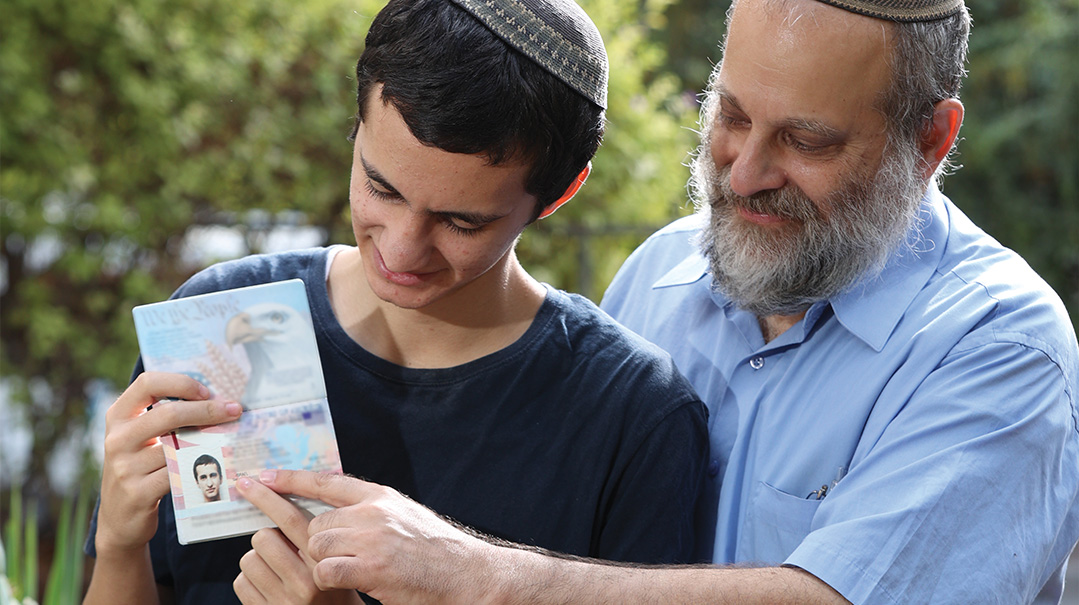
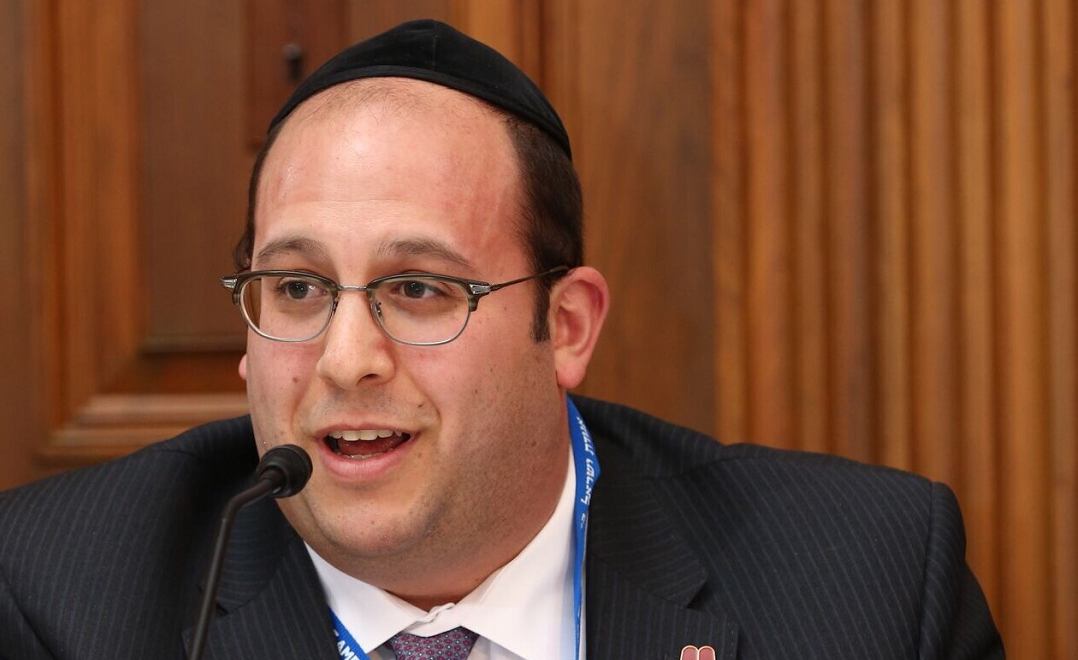
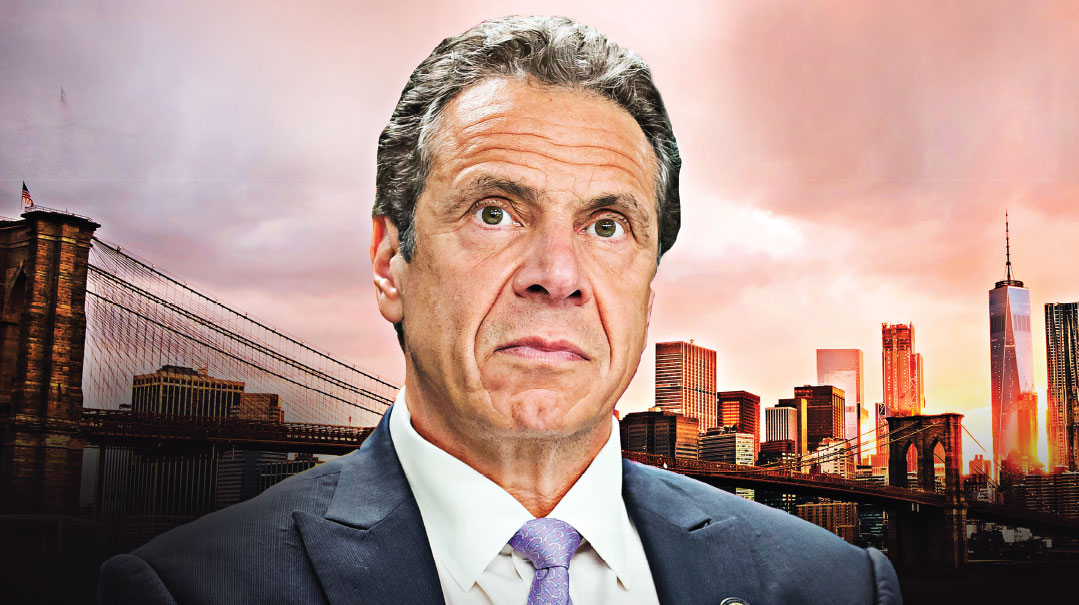
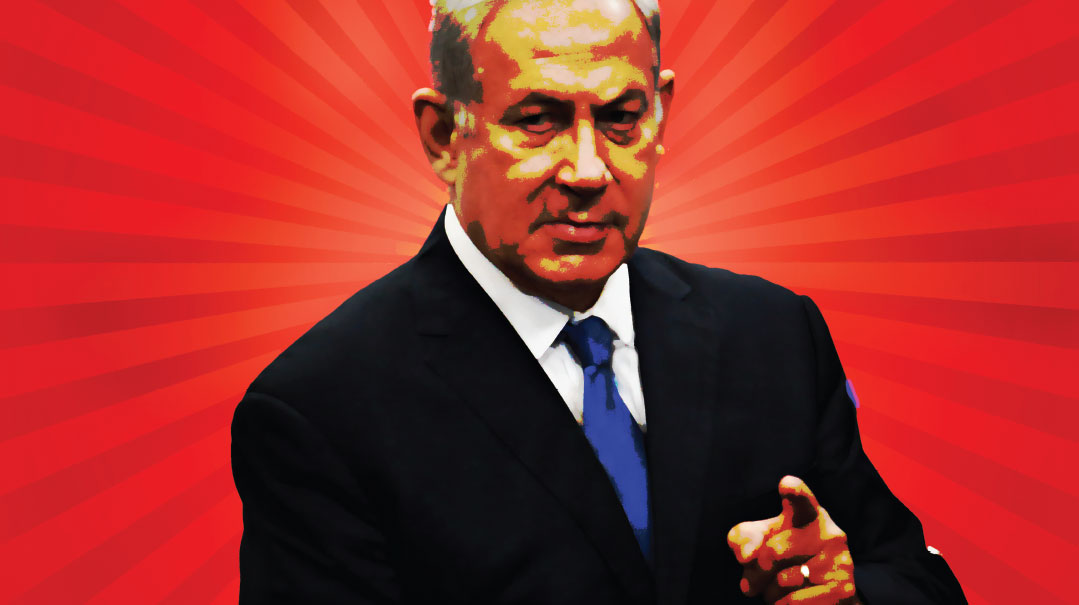

Comments (1)